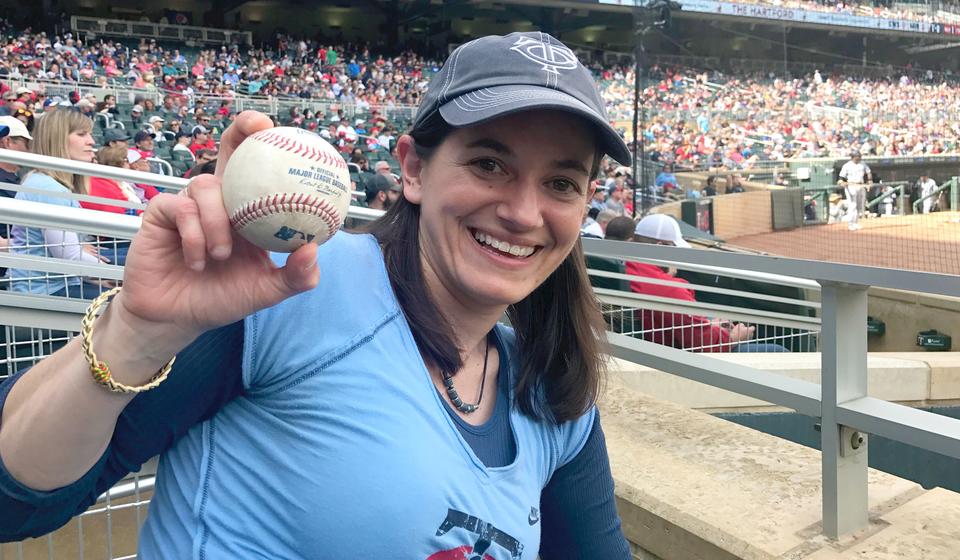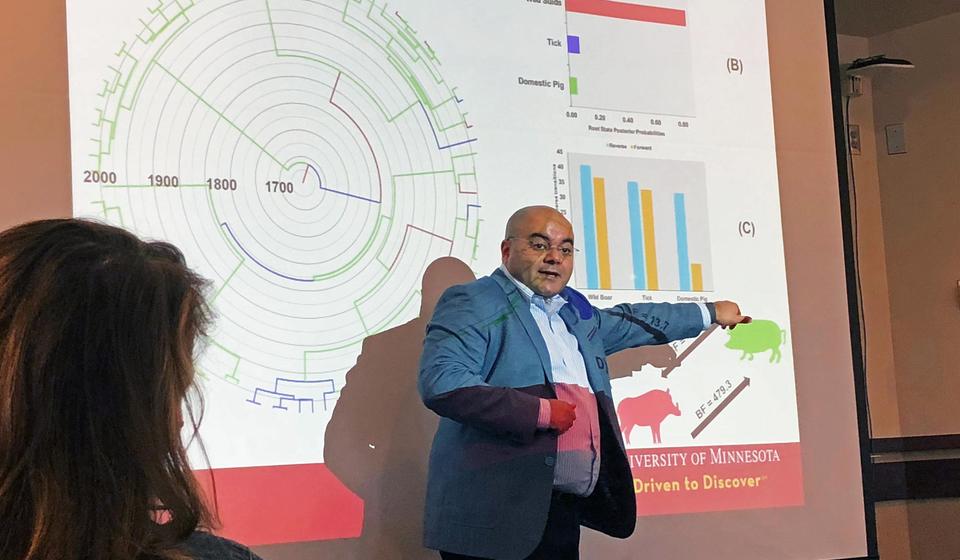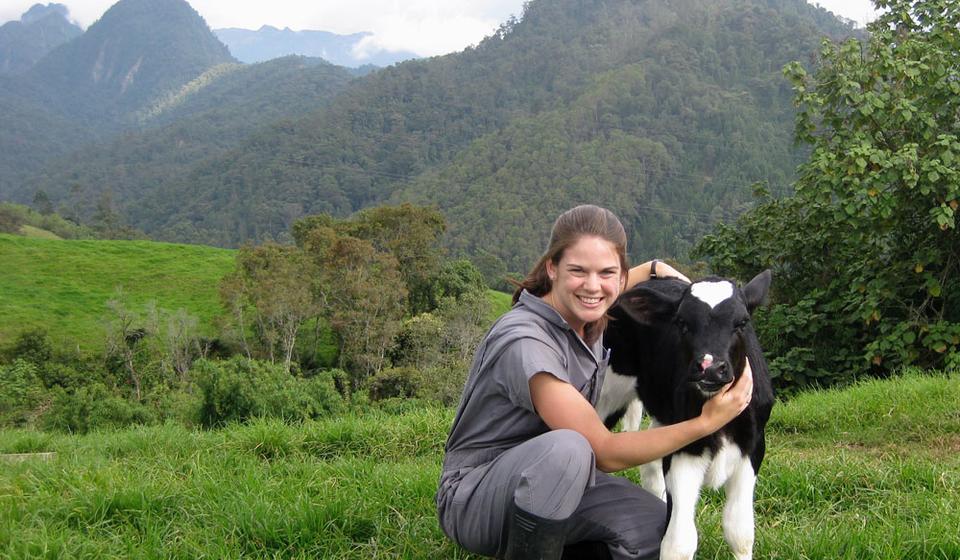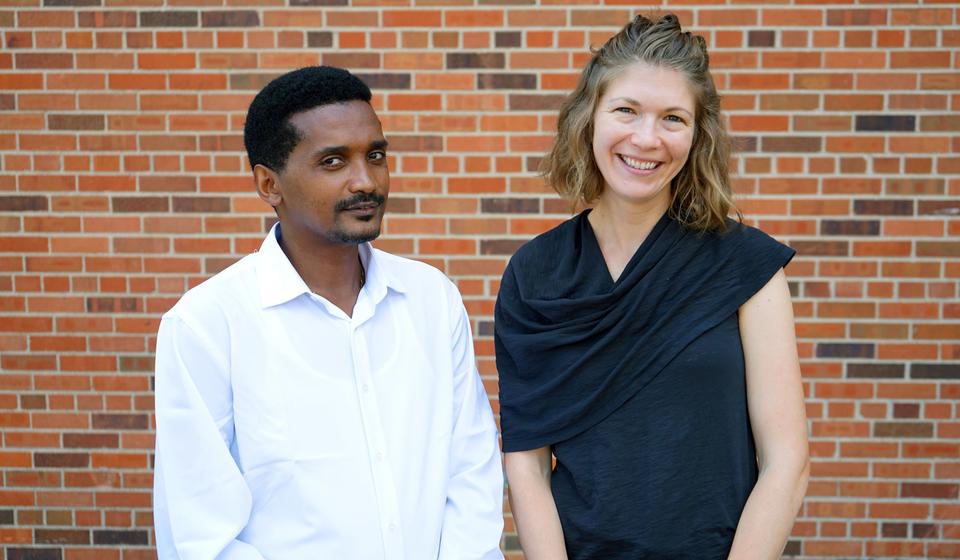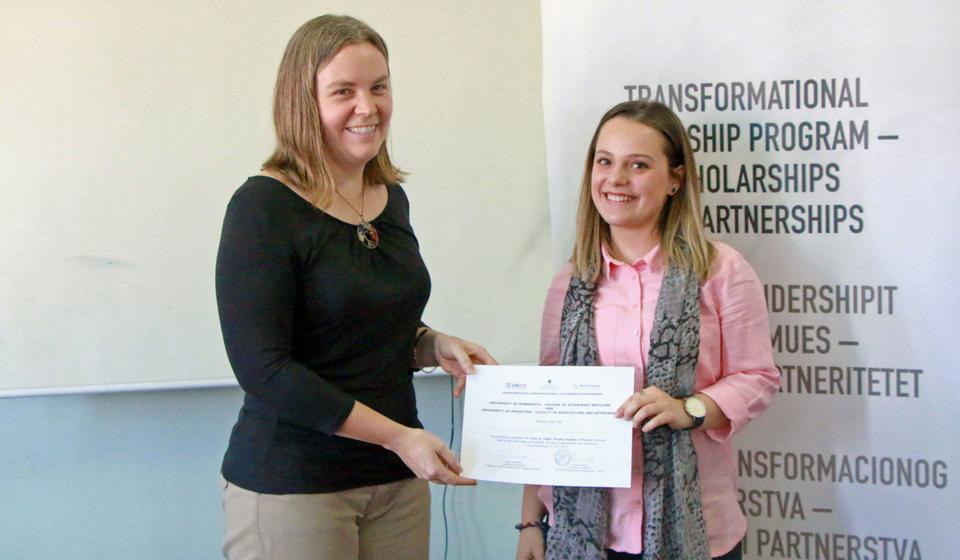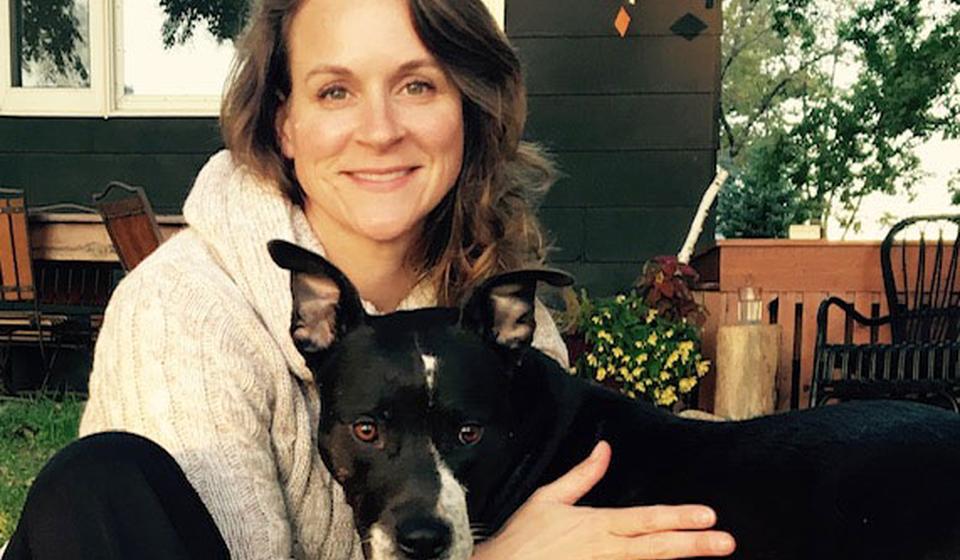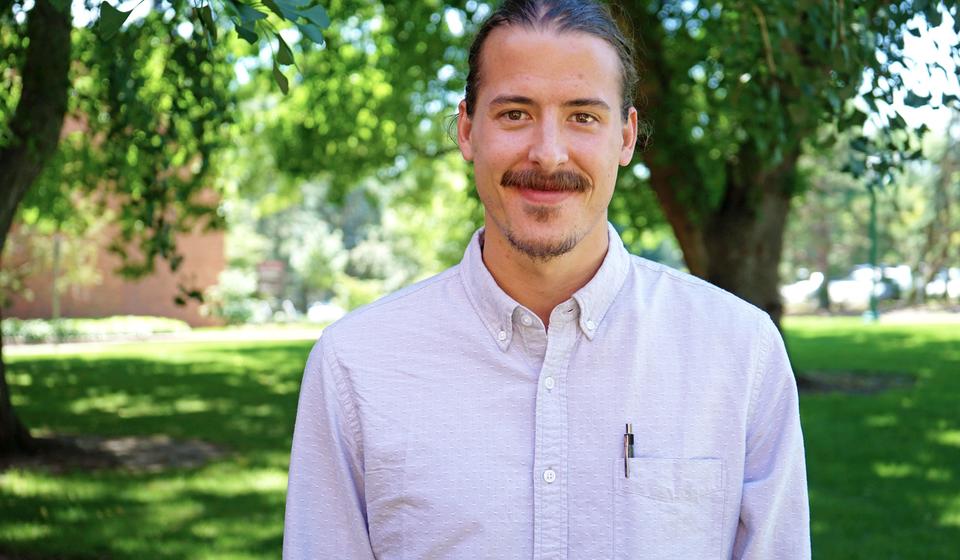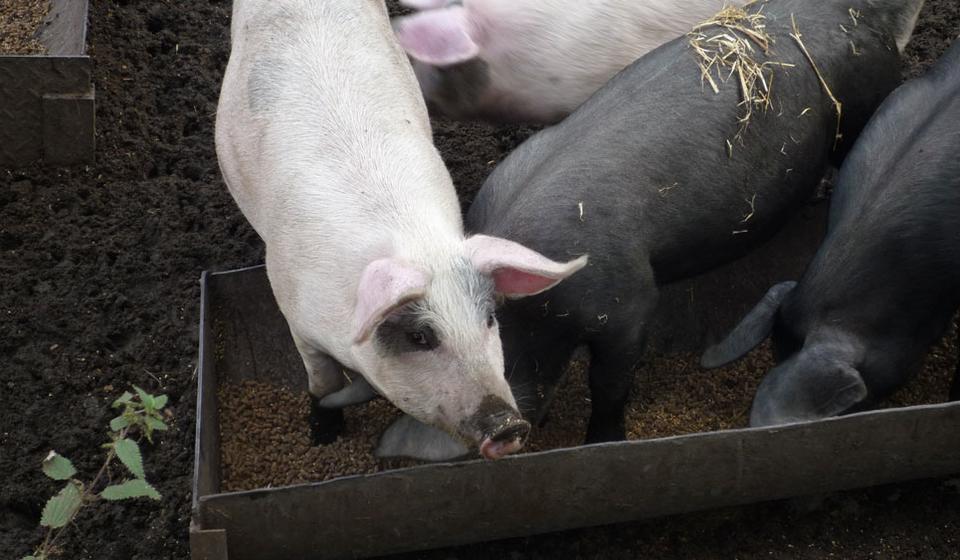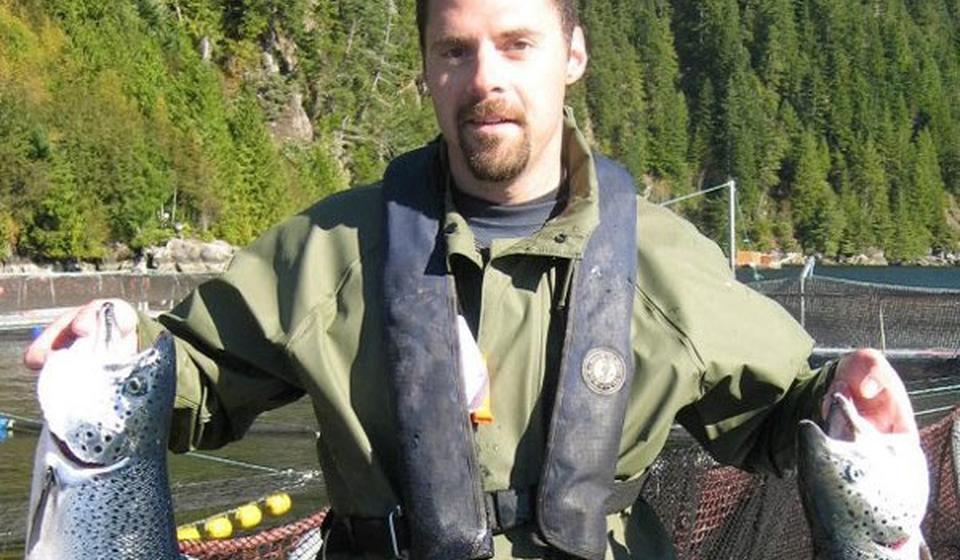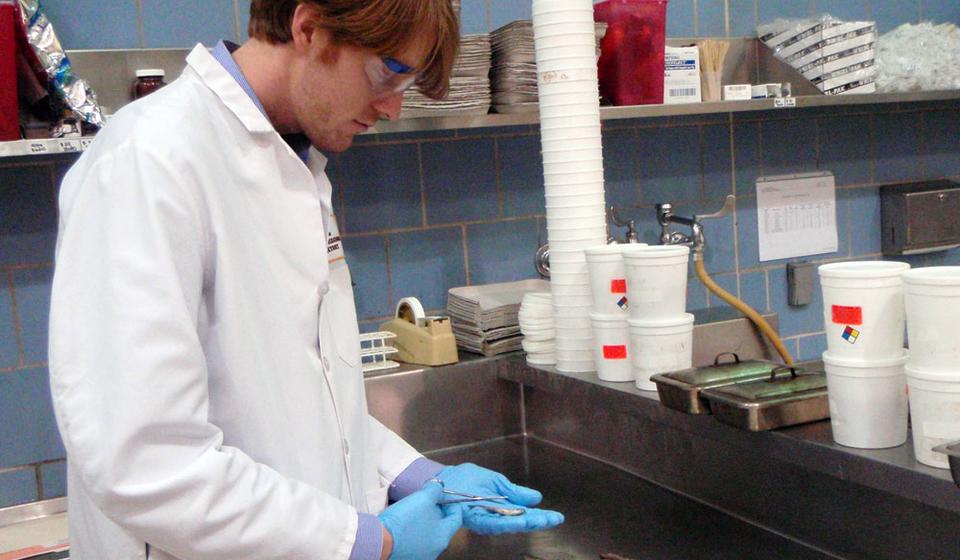Tag:
Faculty and staff
Even in her absence, Larissa Minicucci will continue to shape the lives of many through her legacy, especially veterinary public health and preventive medicine residents.
According to the World Organisation of Animal Health, 75% of emerging infectious diseases in humans are zoonotic. Understanding what drives these diseases to spread is crucial to economic, animal, and human health around the globe.
Our monthly series of CAHFS Spotlights highlights our residents, graduate students, faculty, and staff. This month we're spotlighting a PhD student in the CAHFS Data Analysis Research Team, Dr. Julie Adamchick.
CAHFS and the Veterinary Population Medicine Department are excited to welcome two new residents into the Veterinary Public Health and Preventive Medicine program.
Karin Hamilton, DVM, MPH, DACVPM, directs the University of Minnesota’s Veterinary Public Health and Preventive Medicine Residency. “The VPHPM residency is the only one of its nature in the world to my knowledge."
Our monthly series of CAHFS Spotlights highlights our residents, graduate students, faculty, and staff. This month we're spotlighting Ann Bateman, operations manager at CAHFS.
Our monthly series of CAHFS Spotlights highlights our residents, graduate students, faculty, and staff. This month, we're spotlighting one of our veterinary public health and preventive medicine residents, Gus Brihn.
Swine researcher Pedro Urriola's research includes a multitude of issues such as risk prevention, which focuses on stopping viruses such as African swine fever from infecting pigs through imported feed.
Raising fish for food perfectly illustrates the One Health concept the College of Veterinary Medicine has promoted for many years to describe the interdependence of animal, human and environmental health, says Alex Primus, assistant professor in the Department of Veterinary Population Medicine. “Fish is a very heathy source of protein and when farmed responsibly can be produced in a very environmentally sustainable manner."
CAHFS, the Minnesota Aquatic Invasive Species Research Center, and the Minnesota Department of Natural Resources form an informal partnership to work with private aquaculture producers to tackle concerns about water quality, fish diseases and genetics, and invasive species. By working together, the partners can more effectively confront complex policy and regulatory issues than if they were working alone.
